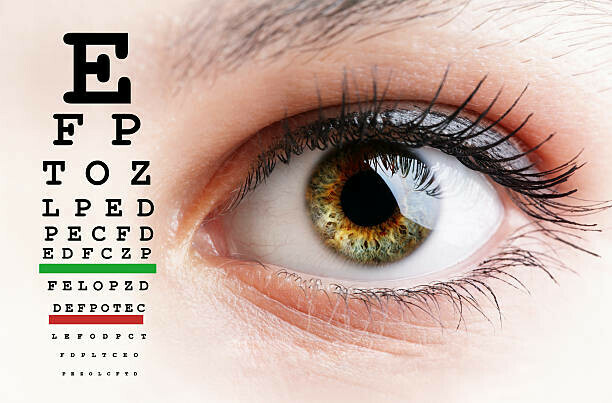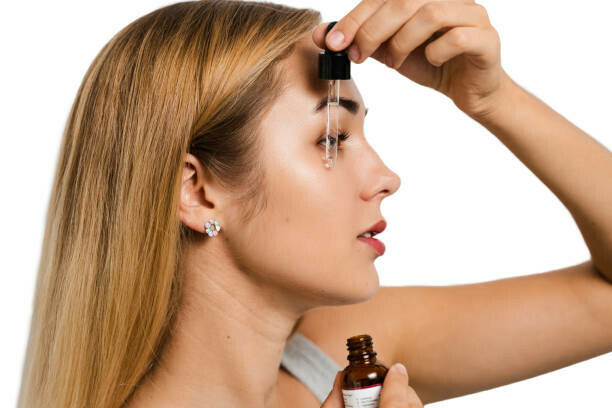Welcome to my article about “Lutein Uses”. Lutein, commonly known as the “eye vitamin,” is a potent carotenoid that has garnered considerable attention recently due to its crucial role in preserving eye health. This vibrant yellow-orange pigment belongs to the xanthophyll group of carotenoids, which are natural pigments responsible for the rich colors in fruits and vegetables. Lutein is not just a visually appealing pigment; it is crucial in human health, especially in shielding the eyes from damage caused by blue light and oxidative stress.
In the natural realm, lutein is plentifully present in various foods, particularly in dark, leafy greens like spinach, kale, and collard greens. These vegetables are abundant sources of lutein, providing a simple method to include this beneficial nutrient in your diet. Besides greens, lutein is also found in other foods such as eggs, predominantly in the yolk, as well as in corn, orange peppers, and some fruits like kiwifruit and grapes. The wide availability of lutein in natural foods makes it easily accessible to individuals aiming to improve their overall health, especially their eye health.
The discovery of lutein dates back to the early 19th century when scientists began exploring the various pigments in plants. However, in the 20th century, the specific health benefits of lutein began to emerge. Researchers found that lutein accumulates in the retina, particularly in the macula, the part responsible for central vision. The discovery directly linked lutein to eye health and its potential to protect against age-related macular degeneration (AMD) and other eye-related problems.

Incorporating lutein into your diet is crucial for promoting optimal eye health and overall well-being rather than being just a passing trend. As our modern lifestyle increasingly exposes us to screens and artificial lighting, the demand for nutrients safeguarding our vision has never been more excellent. Lutein is a crucial element, providing a natural defense against potential damage from prolonged exposure to blue light and environmental factors. By recognizing the importance of lutein and ensuring its presence in our daily diet, we take a proactive approach to preserving our eyesight and enhancing our quality of life.
Health Benefits of Lutein

Lutein offers more than just a vibrant pigment; it strongly supports maintaining optimal health. One of the most recognized advantages of lutein is its essential role in maintaining eye health. This carotenoid is a natural defender of our vision, particularly in the case of age-related macular degeneration (AMD), a prominent cause of vision loss in elderly individuals. Concentrated in the macula, the central area of the retina, lutein acts as a natural filter, safeguarding the eyes from harmful blue light. This protective function reduces oxidative stress and helps preserve vision, making lutein a vital nutrient for those aiming to sustain healthy eyesight as they age.
However, lutein’s benefits extend beyond the eyes. It also functions as a potent antioxidant, aiding in neutralizing free radicals throughout the body. Free radicals are unstable molecules that can inflict cellular damage, leading to various chronic diseases and accelerating aging. By combating these detrimental molecules, lutein helps to shield the body’s cells, reducing inflammation and supporting overall health. The antioxidant properties of lutein also play a significant role in skin health. Lutein functions as an antioxidant, protecting the skin against oxidative damage resulting from environmental factors such as UV radiation and pollution. This safeguarding action helps to preserve the skin’s elasticity, reduce the visibility of wrinkles, and enhance a youthful glow. Therefore, lutein is a valuable ally in the fight against premature aging.

In addition to its well-documented effects on eye and skin health, lutein is increasingly acknowledged for its potential benefits on cognitive function. Emerging research indicates that lutein may promote brain health by enhancing mental performance and guarding against age-related mental decline. This is believed to be attributed to lutein’s ability to penetrate the blood-brain barrier and unleash its antioxidant effects within the brain. Lutein may help enhance memory, focus, and overall cognitive skills by reducing oxidative stress and inflammation in brain cells, particularly in older adults.
Incorporating lutein into your diet can thus yield extensive benefits, from preserving your eyesight to promoting healthier skin and supporting cognitive function. As additional research continues to unveil the wide-ranging impact of this potent carotenoid, it’s evident that lutein is a valuable nutrient that can contribute to a healthier, more vibrant life. Whether you’re intent on maintaining your vision, combatting signs of aging, or enhancing your brainpower, lutein provides a natural and effective solution.
Uses Of Lutein

Lutein has attracted considerable attention not just for its health advantages but also for its wide-ranging uses in different industries. Its use in dietary supplements is one of the most common, frequently combined with other vital nutrients to promote eye health. These supplements, often marketed as formulas that improve vision, typically contain lutein and zeaxanthin, another carotenoid that works in synergy with lutein to shield the eyes from damage caused by blue light and oxidative stress. These supplements are popular among people looking to prevent age-related eye conditions like macular degeneration. They are a simple and effective way to ensure sufficient intake of lutein, particularly for those who may not obtain enough from their diet.
In addition to supplements, lutein is also gaining traction in the food and beverage industry. As a natural pigment, it adds color to various products, including dairy items such as cheese and butter, baked goods, and beverages. However, lutein’s role in food products isn’t solely about appearance; its inclusion also provides health benefits. Some functional foods and drinks are enriched with lutein to enhance their nutritional value, offering consumers an easy and flavorful way to increase their lutein intake. As awareness of lutein’s health benefits grows, its presence in everyday food products is expected to become even more widespread.

The skincare and cosmetics industry has also adopted lutein for its potent antioxidant properties. Lutein is becoming more commonly used in skincare products such as creams, serums, and lotions. It provides protection for the skin against environmental damage and premature aging. The valuable presence of this component in anti-aging products stems from its capacity to neutralize free radicals. This function can diminish the visibility of wrinkles and fine lines and enhance skin tone for a more lively and youthful appearance. In cosmetics, lutein is sometimes used in products such as foundations and BB creams, which impart a natural tint and offer skin-protective benefits.
On the medical front, ongoing research is investigating lutein’s prospective applications in various areas of health. Studies are examining lutein’s role in cognitive function, its influence on heart health, and its potential benefits in lowering the risk of certain chronic diseases. As research progresses, the clinical uses of lutein may broaden, presenting new opportunities to harness its health-promoting properties. Whether in dietary supplements, food products, skincare, or clinical environments, lutein is a valuable and multifaceted nutrient with broad applications that extend far beyond its role in eye health.
Recommended Dosage and Safety

Understanding the suggested dosage and safety considerations to benefit from lutein is essential. Lutein is a potent carotenoid with various health advantages, particularly for eye health. However, as with any supplement, it is crucial to take it in the correct amounts to ensure safety and effectiveness. The recommended daily intake of lutein varies based on individual needs and dietary intake. Nevertheless, most experts suggest a daily dosage of 6 to 20 milligrams for adults to maintain optimal eye health and overall well-being. This range is considered safe and effective, whether dieting or supplementing.
Despite being generally well-tolerated, being mindful of potential side effects and contraindications is essential. Most often, lutein does not cause adverse effects when consumed within the recommended dosage range. However, consuming highly high doses may result in skin discoloration, causing the skin to take on a slightly yellowish tint. This harmless condition, known as carotenodermia, usually resolves once lutein intake is reduced. Before beginning lutein supplements, individuals with certain medical conditions or those taking specific medications should seek advice from a healthcare provider. For instance, individuals with hypersensitivity to any of the supplement’s components should refrain from using lutein.
Interactions between lutein and other medications or supplements are uncommon but can occur. It is essential to be cautious when taking lutein alongside cholesterol-lowering medications or other fat-soluble vitamins like vitamin E, as these may affect lutein’s absorption and efficacy. Additionally, those on blood-thinning medications should approach with care, as when taken in high doses, lutein could influence blood clotting.
To prevent any unexpected encounters, it is recommended to consult a healthcare professional about your supplement routine, mainly if you are using several supplements or prescription medications.

When selecting reliable lutein supplements, several key factors must be considered. Seek out supplements that contain lutein in its natural form, typically derived from marigold flowers, which are renowned for their high content. Choose products that undergo third-party testing for purity and potency, ensuring you receive a high-quality supplement free from contaminants. It is also wise to prefer supplements from reputable brands with clear labeling and dosage instructions. By choosing a dependable lutein supplement and adhering to the recommended dosage, you can safely experience the benefits of this potent carotenoid and promote your long-term health.
Future Prospects and Research Directions

The future of lutein research holds many exciting possibilities as researchers uncover new ways this remarkable carotenoid can improve human health. Ongoing studies are expanding our knowledge of lutein, suggesting its benefits extend beyond eye health. Recent research is delving into lutein’s potential role in cognitive function, with some studies indicating that this potent antioxidant may help maintain memory and mental sharpness as we age. These findings have sparked renewed interest in lutein as a crucial nutrient for brain health, potentially establishing it as a cornerstone of cognitive well-being in the future.
In addition to cognitive health, scientists are also exploring new uses for lutein in various fields. For example, its anti-inflammatory properties are being investigated for potential applications in managing chronic conditions like cardiovascular diseases and metabolic disorders. There is also a growing focus on lutein’s ability to shield the skin from UV radiation-induced damage, which may lead to its inclusion in the next generation of sun care products. As researchers continue to pursue these possibilities, we may soon witness lutein being utilized in previously unimaginable ways, expanding its impact in the health and wellness industry.

Advancements in lutein extraction and production are also on the horizon, potentially making this valuable nutrient more accessible and sustainable. Conventional methods of lutein extraction often rely on marigold flowers, a rich source of this carotenoid. However, researchers are now exploring more effective and environmentally friendly extraction techniques, such as utilizing algae or genetically modified plants, to produce lutein on a larger scale. These developments could decrease production costs and minimize the environmental impact of lutein extraction, making it a more sustainable option for consumers and manufacturers.
Continual advancements in lutein research highlight the importance of understanding how policy and regulatory factors will shape its future uses and applications. Regulatory agencies worldwide are beginning to acknowledge the significance of lutein, with some countries approving health claims related to its benefits for eye health. New findings may necessitate updated guidelines and regulations to ensure consumers have comprehensive information about the potential health advantages and drawbacks of lutein supplements and fortified foods. These regulatory advancements will ensure that lutein remains a safe and effective option for promoting health and well-being.
In conclusion, the future of lutein looks promising, with ongoing research and technological innovations paving the way for new and thrilling applications. Lutein’s growing potential as a powerful nutrient positions it to play an increasingly important role in promoting health and well-being. Its wide-ranging benefits exceed our current understanding and hold promise for the future.
Thank you for reading my article about “Lutein uses” and I would love to receive your comments down below, in case of any.

